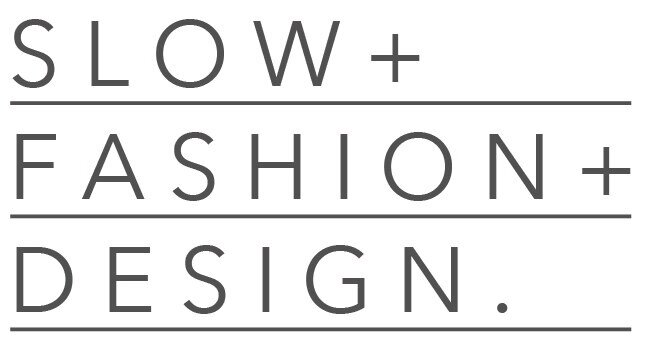PAOLO PASTORE AND FAIRTRADE
Paolo Pastore, executive director for Fairtrade Italia, tells Slow+Fashion+Design about himself and the fair production certificating brand.
I consider myself a dynamic and resourceful person. Yet I'm probably quite lucky, since I have a job I love, to which I can dedicate myself passionately. Thanks to Fairtrade and my professional background, I acquired some skills that serve a positive economic change, something to be proud of.
FAIRTRADE MISSION
Fairtrade is a certified Label for fair trade and production. Its standards have been developed by Fairtrade International, a global Organization bringing together farmers and workers in Africa, Latin America, and the Asia-Pacific area, while being active locally in end-user-Countries.
Our goal is to ensure the best trading conditions for farmers and workers of developing Countries, making it possible for people in Italy, Europe, and other places to buy, in stores and markets, products that narrate a different story, one with social justice and rights towards the workers behind them.
As an organization, Fairtrade has a peculiar feature: in its General Assembly, the Groups coordinating productive activities and the National Organizations have an equal number of seats. This means that the bargaining and decisional power is equally distributed between producer and consumer, nurturing a "development" model focused on joint participation.Most of raw materials, such as coffee, cocoa, bananas, are cultivated in developing Countries, then processed in other ones.
For these, Fairtrade releases a product labelling, not an organizational one. This means that the product's label recognizes specific production standards for its raw materials, respecting Fairtrade's social and environmental requirements. Therefore, it's not about the organization's ethics, rather the way through which a certain good was produced.
TEXTILE INDUSTRY STANDARDS
There is a Fairtrade Standard for cotton, which works on a specific principle. The textile industry has a quite complex supply and production chain: not only farmers, but also other workers suffer from the lack of bargaining power, together with market instability, work insecurity and several challenges established by this sector. Therefore, in these last two years Fairtrade has developed a specific program and a chain standard.
The Goal is obtaining better work conditions, better wages and working rights for the people employed in the textile industry, throughout the whole supply chain. This is a quite different approach to a simple auditing and labelling task, combining a strong standard with a program sustaining both workers and local businesses.
Such goal requires companies a long-term commitment, defining a time span of 6 years, a deadline within which all their workers must earn a respectable salary.
FAIRTRADE IN ITALY
Fairtrade goals in Italy for the following years are focused on enhancing bananas, cocoa, coffee and sugar supply chains, which constitute some wide trading potential areas for our Country.To be honest, here Fairtrade also labels some multinational products, such as cocoa. This is a choice made because of our main target, the small producers: in order to generate a true, positive impact on them, we ought not to stay in a niche.
We need volume. Ideally, only when all of the cocoa, sugar, coffee, and bananas are sold by Fairtrade standard on a global scale we will be able to really achieve our goal.On the other hand, about 80% of farmers working with Fairtrade are small farmers, producing goods on small amounts of soils, an average of 2 hectares per farmer. These are the people most in need of our help, of gathering together in order to build strong groups, therefore gaining all the technical support they need to start stronger trade relationships.
The textile and fashion industry is quite an interesting one. It's recently developing a great and agitated interest towards sustainable fashion, with a lot of brands and events focusing on the environmental side of it, rather than the ethic one.
Fairtrade doesn't consider cotton as one of the most impactful products on the producers' lifestyles - our new textile standard walks towards this direction. However, the Fairtrade system is engaged in the collective movement reasoning on ethical and sustainable fashion. As a matter of fact, we are taking part in the discourse, supporting campaigns such as Fashion Revolution. We lately took part with a Stand to Berlin's Ethical Fashion Show.
Apart from some attempts and experiments, portrayed by the most various Brands, I believe that today fashion still represents a great challenge, given the complexity of the whole production chain.
PAOLO PASTORE IS SLOW
I appreciate that slow philosophy addresses the concept of giving back value to all the people involved in the fashion production chain, opposing the idea of our consumistic, prevalent model. Reestablishing the quality of our clothes means making people proud of wearing unique pieces, a process that I love.Being sustainable today means, above everything, being informed correctly about our consumption choices, behaving consistently. It's so easy to get some information, on and offline, but lazyness and habit often drag us beyond the danger level.
My personal invitation to everyone is: take your time, in front of the market shelf as well as reading a clothing label, and try to understand the difference between all the choices. Selecting a brand instead of another, we support the trading (and all the other) choices of such company, whether or not we are aware of them.
I am an optimist by nature, so I imagine that in the next years we are probably going to witness a collective growth of interest towards sustainability. People will get used to make aware and better consuming choices.Young people are more sensitive about such issue than older generations. It's not just a feeling, rather a trend that we as Fairtrade detect thanks to our point of view, given by italian consuming statistics and periodical market researches.
Passaggio De Gasperi 3, 35131, Paduatel. +39 049 8750823 | fax . +39 049 8750910 |




